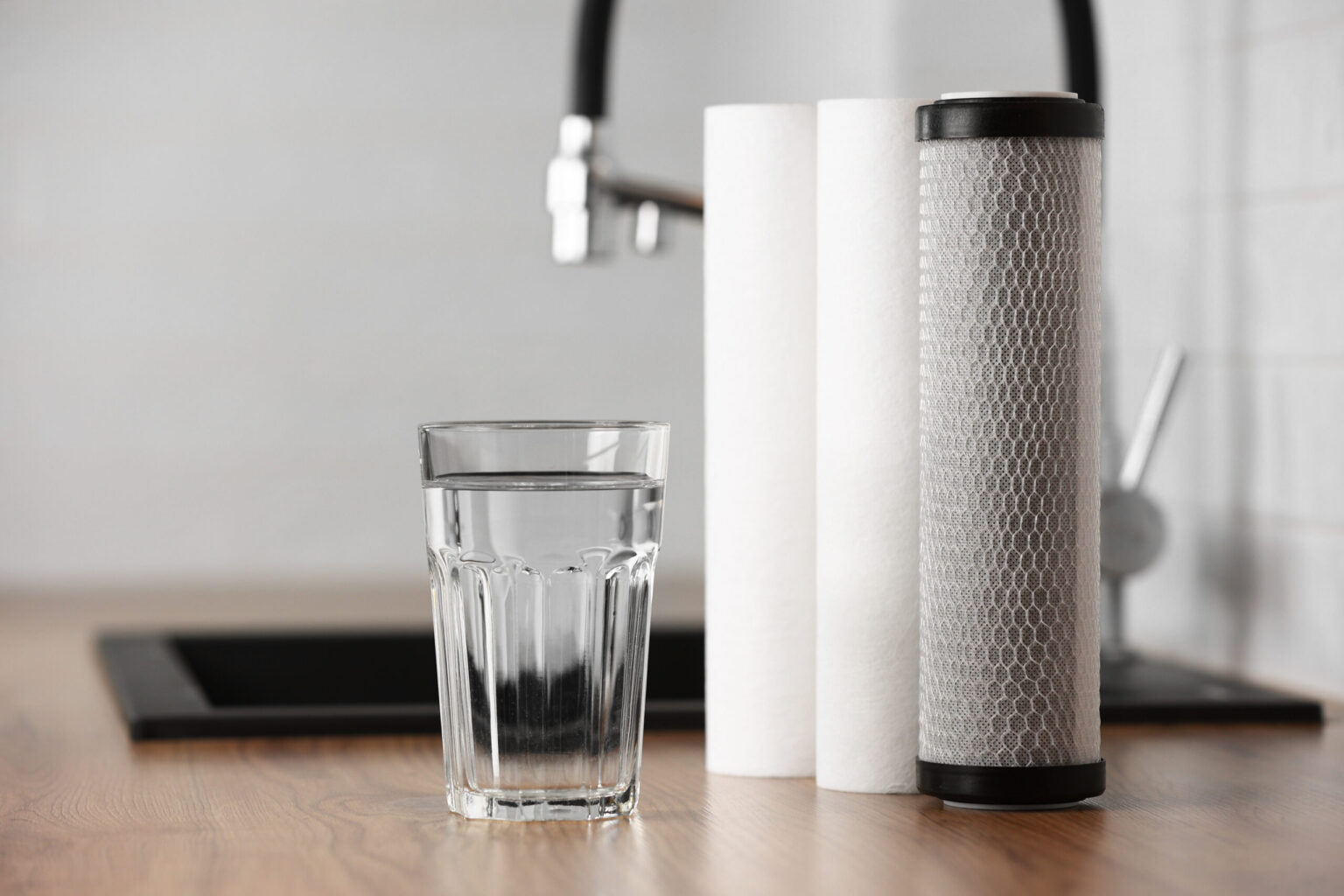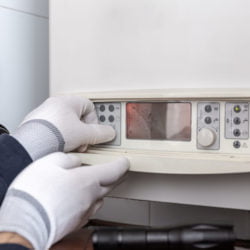Manufacturing industries form the spine of any economy, and a key player in the smooth operations of these industries is the industrial reverse osmosis (RO) system. These systems are crucial in providing clean, purified water, a resource particularly vital to various manufacturing processes. In this article, we unfold the role of industrial RO systems in manufacturing plants and discuss their significance in maintaining these industries’ sustainable and efficient operations. Keep reading to learn more.
Understanding the Basics of RO Systems
Before we plunge into industrial usage, let’s start with understanding an RO system. A reverse osmosis system is a technology that uses a multi-stage filtration process to remove impurities and contaminants from water. It’s called reverse osmosis because it operates by reversing the natural process of osmosis. Where osmosis moves water from an area of lower solute concentration to a higher one, this system does the exact opposite, refining, and purifying water.
RO systems are equipped with semi-permeable membranes and use pressure to push water against these membranes. The impurities are then trapped while purified water passes through. From removing sediment and chlorine to harmful elements like lead, arsenic, and other disease-causing pathogens, RO systems ensure that the water you use is free from harmful substances.
While they are utilized for multiple purposes spanning domestic use, medical procedures, and industrial applications, their role in manufacturing processes is the most critical.
Importance of Maintaining Your System
Industrial RO system service is essential to maintaining the efficiency and effectiveness of industrial water treatment systems. Over time, the RO membranes can become fouled with substances like bacteria, minerals, and other deposits, leading to decreased performance and increased operational costs.
Regular maintenance and cleaning of the RO membranes are crucial to ensure optimal functioning and longevity of the system. Professional service providers offer specialized RO membrane cleaning services that help remove the accumulated contaminants, thus restoring the system’s efficiency.
The importance of RO system maintenance cannot be overstated. It helps to maintain the highest quality standards in industrial processes. The presence of contaminants can negatively affect the product’s quality or compromise the efficiency of the equipment. By regularly servicing the RO system, industries can ensure that their water is consistently pure and free from pollutants, resulting in better products and reduced risk of equipment failure.
Industrial RO maintenance helps to improve the lifespan of the RO membranes. With proper maintenance and cleaning, the membranes are less likely to suffer from irreversible fouling, which can lead to the need for premature replacements. Regular service not only saves on the costs of new membranes but also minimizes downtime, ensuring uninterrupted operations and productivity.
Semiconductor Manufacturing

Semiconductor fabs that manufacture chips for computers, smartphones, and other electronic devices are one of the biggest consumers of clean water since the process of creating semiconductors requires a high degree of sanitation. Any trace of impurity may result in defects in the produced circuitry, leading to significant production issues and financial loss.
Not only cleaning but also etching and rinsing processes in semiconductor manufacturing highly depend on the water’s purity level. Manufacturers widely recognize this concern and ensure to incorporate RO systems as a part of their infrastructure.
A malfunctioning RO system might cost semiconductor manufacturers crucial downtimes. To mitigate these risks, semiconductor manufacturers must regularly maintain and monitor their RO systems. This includes routine inspections, filter replacements, and continuous monitoring of water quality. Additionally, having backup systems in place can help minimize downtime in case of a malfunction.
Food and Beverage Industry
The food and beverage industries are another major clean, purified water consumer. Water plays an integral role from the initial stages of production to the final packaging. Impure water can not only affect the taste quality but may also become a source of contamination, posing health risks to end consumers.
Therefore, companies in these sectors integrate quality RO systems to deliver faultless products to the market consistently. Proper maintenance of your water filtration systems becomes imperative in this domain to avoid any form of disruption in the production line due to water-related issues.
The beer brewing industry uses RO systems to produce consistent flavor profiles. Water characteristics can significantly impact the beer’s taste, so breweries employ RO systems to standardize the water used in brewing, ensuring their product’s consistent flavor.
Pharmaceutical Manufacturing
The pharmaceutical industry needs ultra-clean water for its complex production requirements. Industrial RO systems come to the rescue as they can purify water to the stringent levels required by this industry. Applications include but are not limited to the creation of injectable solutions, formulation of medicine, and washing of containers.
If water quality isn’t maintained, it can result in dangerous contaminations and severely impact public health. A competent, flawless RO system is indispensable for the sustained operations of the pharmaceutical industry.
Cartridge filters of the RO systems must be replaced regularly, and membranes cleaned timely to ensure efficient functioning. This puts greater emphasis on the need for reliable RO systems in this sector.
Textile Industry
Water is heavily used in the textile industry for processes like dyeing, printing, and washing. The presence of minerals and other impurities can cause inconsistent coloring and quality issues. Employing an RO system ensures that the water used in these processes is free of contaminants, helping to maintain the quality output.
Furthermore, the presence of impurities could cause scaling and corrosion in the machinery used. By using RO-purified water, this machinery degradation can be prevented, leading to a longer lifespan of these expensive assets.
Apart from production, water is also crucial for auxiliary services in textile mills like boilers and cooling towers. Here, purified water leads to efficient functioning and reduces the maintenance requirement for these setups.
Automotive Industry

Painting and coating processes in the automotive industry call for high-quality water. The use of impure water would result in flawed paint jobs and uneven coatings. RO systems remove these impurities and provide the needed high-quality water.
Water plays a vital role in cooling and vapor-degreasing engine parts. Cooling is crucial to prevent overheating in engines, which can lead to serious damage or even complete failure. Water is used as a coolant because of its excellent heat transfer properties. It helps dissipate the excessive heat generated by the engine and thus maintains its temperature within acceptable limits. This process is essential to ensure the longevity and efficiency of the engine.
Just like other industries, automotive manufacturers also require consistent and efficient reverse osmosis systems to maintain the systems in top order, ensuring the continuous supply of quality water.
Impact on Sustainability
On top of all the advantages discussed above, adopting RO systems in industries also makes them more sustainable. The use of RO systems reduces the dependency on clean water by treating and reusing the water. Water scarcity is a global problem, and this is a huge step towards preserving this vital resource.
Furthermore, by eliminating harmful substances from water, these systems help prevent releasing these contaminants back into ecosystems, playing a role in environmental conservation.
The integration of an effective and efficient RO system is crucial for industries to maintain their standard of product quality, machinery health, and sustainable practices. With this knowledge, industries are better equipped to consistently implement and maintain their RO system to produce high-quality products.






